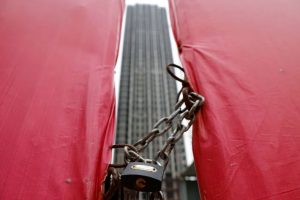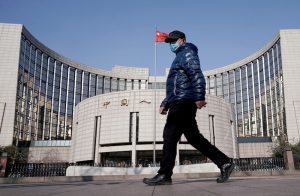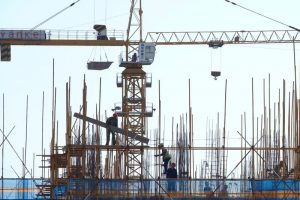China Evergrande Group vowed on Tuesday to “vigorously” oppose a lawsuit that aims to liquidate the company, which is the world’s most indebted developer.
Evergrande confirmed the filing by investment holding firm Top Shine Global Ltd in Hong Kong, for not fulfilling a financial obligation of HK$862.5 million ($109.91 million), but insisted that the move would not effect its restructuring.
The developer has over $300 billion in liabilities and defaulted on its offshore debt last year. It expects to announce a preliminary restructuring plan – offshore debt revamp – by the end of July.
In a stock exchange filing on Tuesday, it said that if it was wound up, any disposition of property directly held, including assets and shares, would be void unless the court grants a validation order.
In such a scenario, it said, any transfer of shares by shareholders or potential investors on or after June 24, when the petition was filed, would be void.
Trading of Evergrande shares has been suspended since March 21 as the firm was unable to publish its financial results on time, and because Evergrande Property Services Group Ltd said it was investigating how banks seized 13.4 billion yuan ($2.00 billion) in deposits that had been pledged as security for third-party guarantees.
On Monday, a Top Shine executive said his firm filed the petition because Evergrande had not honoured an agreement to repurchase shares it bought in Fangchebao (FCB), Evergrande‘s online real estate and automobile marketplace.
The executive said Top Shine bought 0.46% of FCB for HK$750 million in March last year ahead of an initial public offering (IPO), and that Evergrande agreed to repurchase the shares with a 15% premium if an IPO did not materialise by April 8, 2022.
- Reuters with additional editing by Jim Pollard
Note: This report was updated with further details on June 28, 2022 and the headline amended.
ALSO READ:
China Evergrande Handed Delisting Deadline by HK Exchange
Beleaguered China Evergrande Group Loses Fitch Rating
Evergrande Looks at All Options to Pay Huge Offshore Debts
























